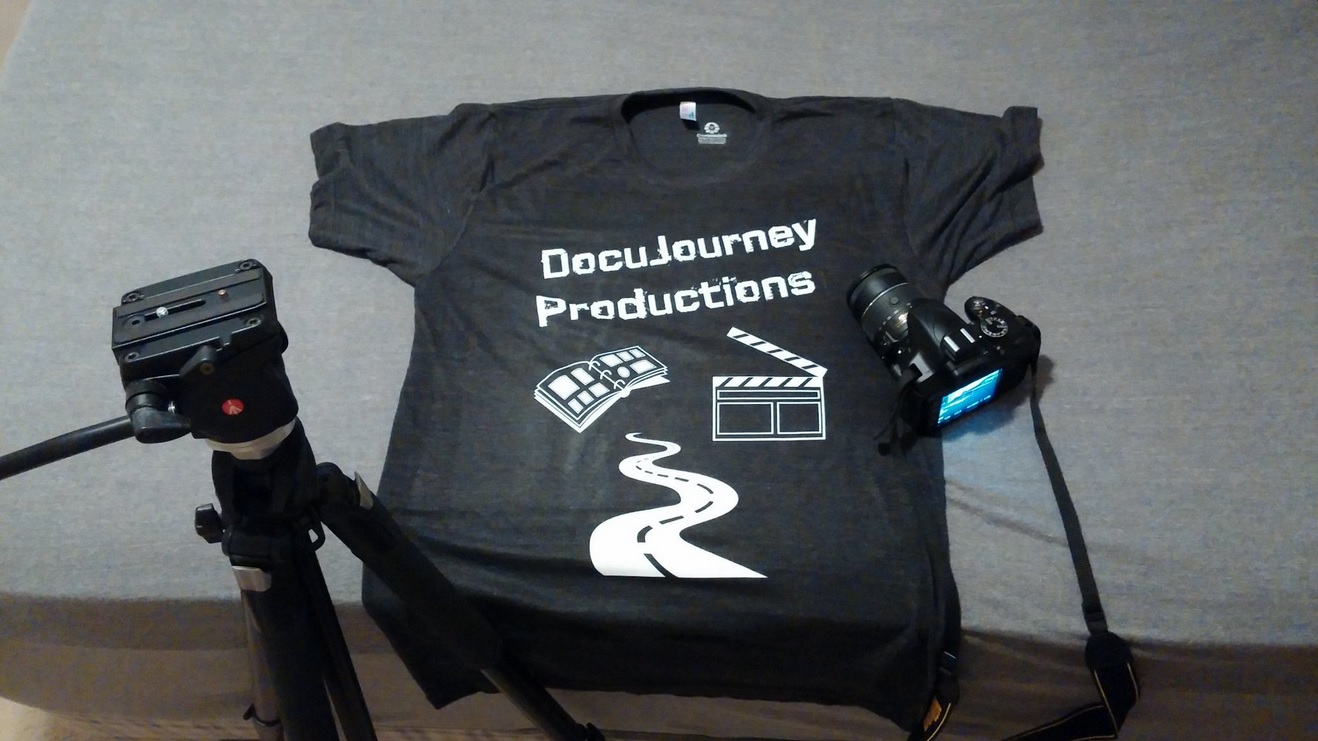Much is said about the motivation and inspiration of documentary filmmakers behind a particular film–which began as a idea-turned-project some several years back. Most of the time this question arises among audience members during Q&A sessions after film screenings. Other times it comes up in Skype, radio, or broadcast television interviews. Filmmakers have answered it with the thoroughness of completed, personable responses. It is often their favorite question to answer. But, what truly does drive documentary film directors and producers to pursue a given topic and storyline for months, years on through? What compels them to deliver a project from concept to completion in arguably a much deeper and probing manner than a graduate student or field researcher? To be moved on a single thesis in a specific environment involving singular characters through a visual-spatial medium for the goal to disseminate a message and theme to global and niche audiences is, indeed, a worthwhile curiosity pondered by lay audiences. In truth, documentary filmmakers are pushed by a higher consciousness, a higher energy source that is beyond their scope or apparatus. It is said that such filmmakers are chosen rather than choose. Control is a serious yet delicate thing. It is prolonged by anticipation to direct a once-murky and broad subject matter and keep it going in the most turbulent of environs starting from pre-production well into post-production.
Documentary films are not accidents. They are as meticulously crafted and thoroughly put together like any endeavoring artistic project one phase at a time. However, the control to push through on a given project into a finished film work is not always there nor fully met. It can be said that truth with a capital T is what moves such filmmakers and their teams for months and years on through. But I believe something more is at the heart of the documentary film sojourn. Along the way as control is forever alluding them in the inspiring, aspiring journey to share a given message–an impulse to deliver a powerful and important understanding is called into destiny. In his 2013 documentary film on Haiti entitled, Fatal Assistance, director Raoul Peck is driven to go back to his homeland after a devastating earthquake left most of his country in ruins. He and his team are driven to tell the truth on the aftermath of “help” promised by outside governments, NGOs, and other nonprofit organizations. The control in understanding the politics and being able to sift through its often irreconcilable terrains to get at the story of post-disaster Haiti (and particularly–post-earthquake-hit Port-au-Prince) compelled him in his film journey to deliver an engaging film as much as his inspiration to exposing what has happened. He narrates in the film: “Who will save us from our saviors?” Peck like other documentarians are bent in exposing, reporting, and narrating a story but he is without control in the subject matter he is embarking on and the characters who will voice the subject matter. If he is to follow through on his intended thesis he is moved out of his control on an unscript story–the very approach to documentary film storytelling. Here, he is simply the messenger.

If documentary film titles were juxtaposed in an equal balance of thought and control the nonfiction theme to its work will be lost. It would be pushed in the category of a “docudrama” or “reality television” programming–which are completed with either “hard” or “soft” scripting. This elusiveness toward control and the inspiration to direct a storyline in a passionate pursuit does not shift the bias intention to documentary filmmaking. Let’s preface here that bias is not a pejorative term when truly understanding documentaries. After all, documentary filmmaking is not journalism–per se. Rather, they are persuasively-constructive, expository essays–longform think pieces of a given narrative established by premises and anecdotes. And, just like a thesis it is one-sided with flowing arguments, tidbits, nuances, and perspectives. In fact, that driven nature that completes documentaries when it comes from one side is what propels the best documentaries to the top over those that intend to be balanced for fear of not being neutral. No neutral tendency is enough to drive the motor of documentary film teams treading through strange milieus for the end goal of a completed documentary. Neutrality like control is a mirage.
Control also drives the destiny of documentary filmmakers. Was Joshua Oppenheimer truly in control when directing his films The Act of Killing and the follow-up The Look of Silence as he was corralled to the murky environs of the island country of Indonesia to unearth one of the most brutal periods of human violence that has occurred in the 20th century? In fact, shortly after his 2014 film, The Look of Silence, Oppenheimer was a 2014 recipient of the MacArthur “Genius” Award, a prestigious award for an individual who has shown “extraordinary originality and dedication in their creative pursuits and a marked capacity for self-direction”. Here, self-direction was his motivation and inspiration to continue beyond the storylines and characters that he could not essentially control in front of the camera; the narrative had to unravel one frame at a time. Along the way he had to treat the capturing and documenting of such a story as delicate as possible or allowable. Here, it sounds like Oppenheimer has been called not necessarily upon his own request. Being without control in this context leaves the impression that documentarians are without a choice as to how to navigate through a given plot. The choice to continue and further examine and articulate a story plot from climax to denouement is always on the table. The room for creativity through a variegated trajectory of expressions is always available. The decision to control outcomes, predilections, commentary, and recourse, however, is not. Only the most passionate and sensitive of documentary filmmakers prolong through this “out of control” journey for a final outcome of a completed product.
